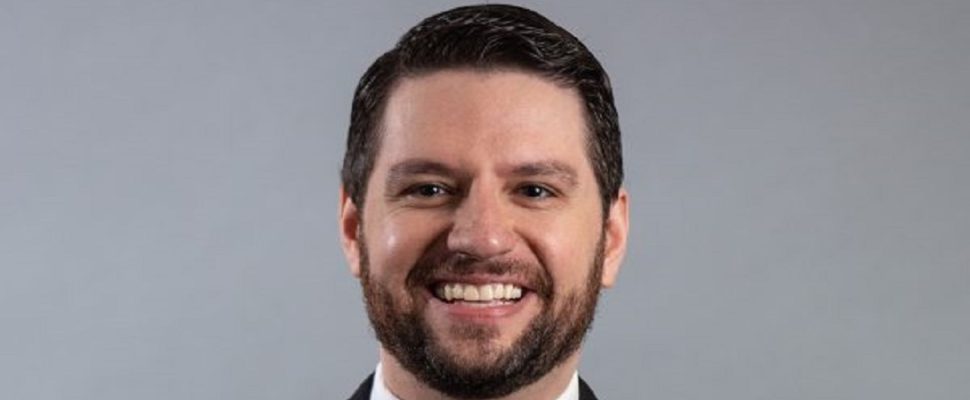After a globe-trotting career that led him to diverse global affiliates, the long-term Takeda executive Rodrigo Rodriguez is going full circle. Returning to where he began his career at the Japanese drugmaker, Rodriguez will be taking on a country full of opportunities and challenges. With more dengue cases than anywhere in LatAm, Brazil may present an important market for Takeda’s Qdenga vaccine, yet stiff competition is looming.
Reconnecting to Brazilian Roots
“I am fortunate to work for an organization with a global footprint and which fosters talent. This has allowed me to obtain career and life opportunities abroad,” Rodrigo Rodriguez told PharmaBoardroom back in 2021 as general manager of Takeda’s Middle East Cluster. But the Brazilian national’s career trajectory at Asia’s third largest drugmaker began in his home country in 2010.
At Takeda Brazil Rodriguez held a number of senior positions, including director of the Prescription Business Unit and executive director of Gastroenterology, Neuroscience and General Medicines, before taking on roles that brought him further afield. Leading the 15-country Middle East cluster for three years, where he had to confront the COVID-19 pandemic, brought Rodriguez invaluable experience. “I feel privileged to have had this challenge during my first international general manager role,” he commented at the time.
Most recently, Rodriguez led the Japanese giant’s operations in Eurasia, the Middle East, and Africa (EAMEA), after holding a related position as head of Ukraine, the Middle East and Africa (UMEA). Both of these roles led him to experience a wide variety of differentiated markets. “Some markets are developing, others are developed, and we have a mix of private and public systems … we must adopt a localised strategy within each market,” Rodriguez explained.
Managing such varied territories has brought the pharma exec significant insights. Reflecting on his international career and how it will impact his new position he said, “I bring valuable learnings about innovation, collaboration, and sustainable impact. Working in diverse markets has shown me that the most transformative solutions arise from listening, trusting people, and committing to purpose.”
Brazil: Opportunities and Challenges
In his new role, Rodriguez is taking on a vast market and one that is also full of contradictions. Brazil has the largest public healthcare system in the world and the largest pharma industry in the region, which produces about USD 14.7 billion in annual sales. The nation also boasts a regulatory body that is often recognised as LatAm’s leading national medicines regulator, ANVISA.
These factors have made Brazil a strategic destination for both regional and global pharma and according to the Brazilian pharmaceutical industry association Sindusfarma, the nation’s drug market had 341 companies in 2022, with multinational companies holding 32.08 percent of the market in sales.
Recent regulatory reforms – such as a simplified process for medicines that have been approved by foreign regulators – have also made the country more attractive for pharma. In addition, last year’s new clinical research law streamlined the clinical trials application process, making Brazil an even more desirable destination for conducting clinical research.
In 2023 Brazilian president Luis Inácio Lula da Silva revived the Union of South American Nations (UNASUR) in efforts to encourage pharma trade in the region and improve disease response standards across Latin America. However, the spread of infectious diseases has had catastrophic effects in the broader LatAm region as well as in Brazil. In 2024 alone, Brazil reported more dengue cases than anywhere else in the Americas – 9.6 million cases and over 5,000 related deaths.
Dengue Vaccine Promise
Takeda has a significant presence in Brazil and considers itself one of the top ten pharma players in the country. Despite the 2018 divestment of the Brazilian branded generics and OTC medicines maker Multilab, which Takeda originally purchased in 2012, the company has maintained a strong presence there. Apart from its São Paulo headquarters, where it employs some 1,700 people, the firm also has a relatively large manufacturing facility in Jaguariúna.
In Brazil, Takeda covers therapeutic areas that range from oncology and gastroenterology to vaccines. Brazil’s dengue proclivity, have made it an important market for the company’s dengue vaccine, Qdenga. Approved by ANVISA in 2023, Qdenga has been incorporated into the country’s public healthcare system as well as its private system.
Moreover, the nation’s Ministry of Health purchased four million doses of Qdenga from Takeda last year and has planned to distribute an additional nine million in 2025. But a lack of production volume led the government to focus vaccination exclusively on children between 10 to 14 and only in certain critical areas. Because the vaccination programme was not country-wide, uptake was stunted by the lack of a widespread awareness campaign.
While a technology transfer agreement between Takeda and the Oswaldo Cruz Foundation (Fiocruz) may be set to increase domestic production of Qdenga, the Japanese pharma is soon to come up against fierce competition. The Brazilian biomedical research centre Butantan Institute has developed what it is calling the world’s first single-dose, tetravalent, or vaccine covering all four dengue virus serotypes, Butantan-DV. Butantan submitted its application to ANVISA for approval of the vaccine in December 2024. In the meantime, the Brazilian government has partnered with China’s WuXi Biologics to facilitate large-scale domestic production of the vaccine. Part of Brazil’s Local Development and Innovation Program (PDIL), the collaboration aims to produce 60 million doses annually as of 2026.



